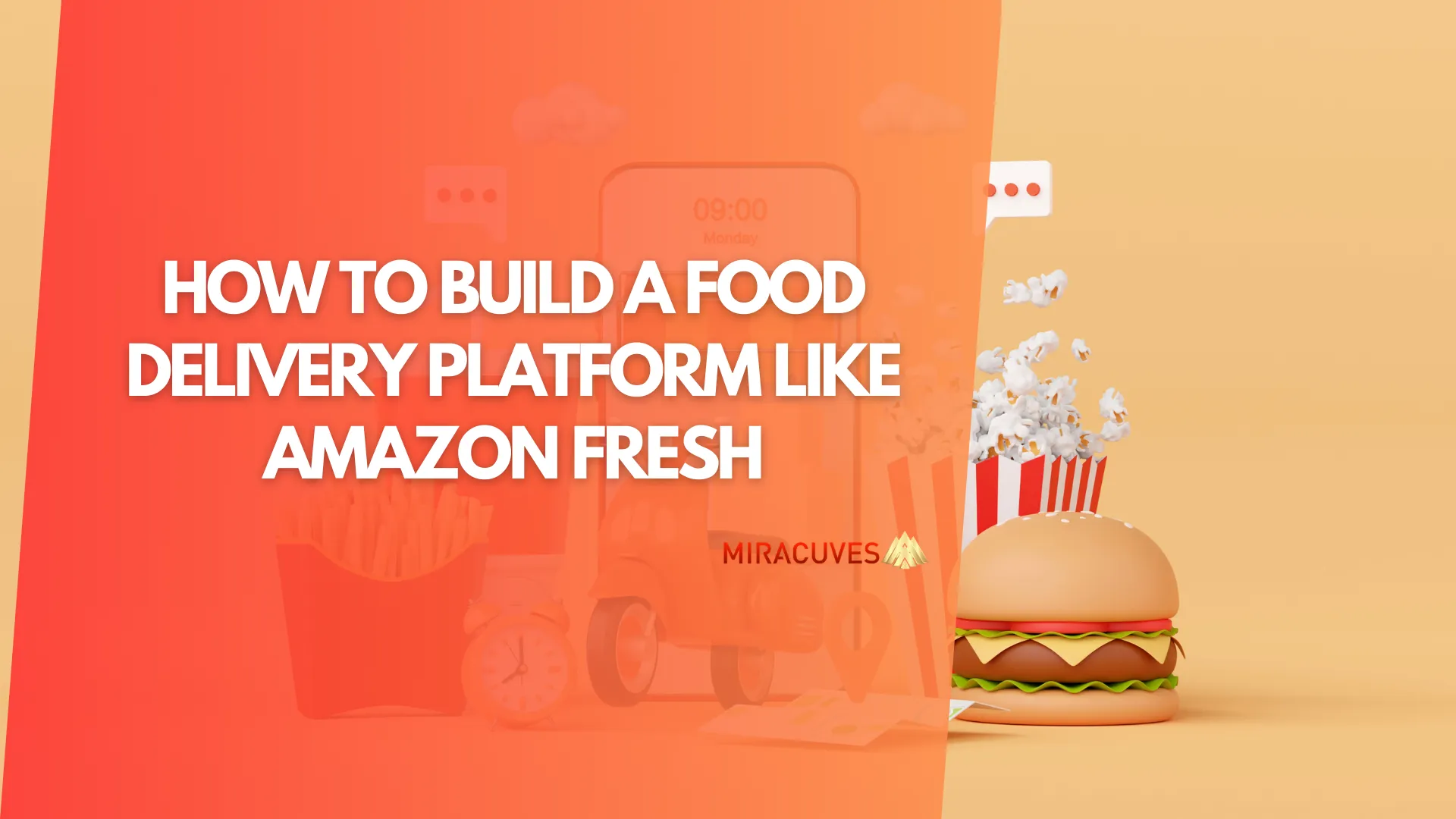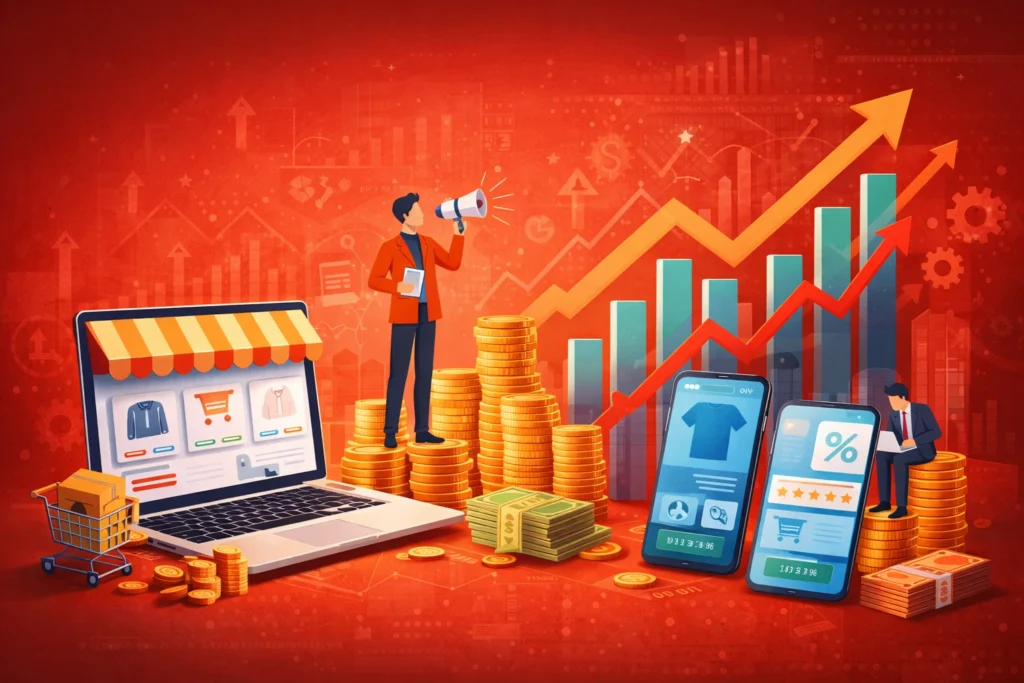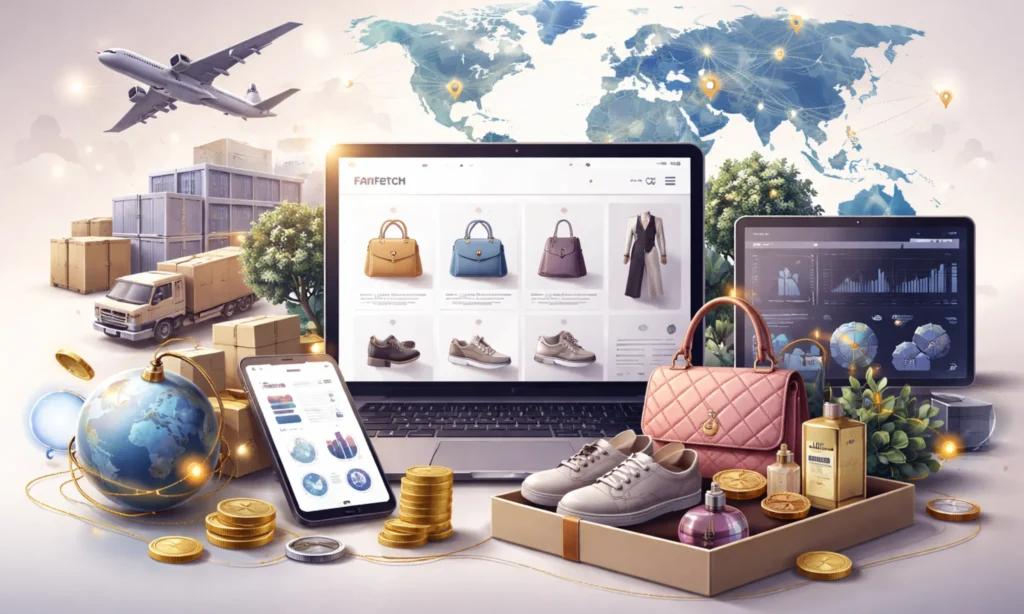The online grocery delivery market is booming, driven by the increasing demand for convenience and the shift towards digital shopping. Platforms like Amazon Fresh have set the benchmark for seamless, efficient, and fast grocery delivery, making it a top choice for millions. But with this growth comes an exciting opportunity for new players to enter the market.
If you’re considering building a food delivery platform like Amazon Fresh, you’re tapping into a rapidly growing industry that offers vast potential for success. From design to launch, creating a grocery delivery app like Amazon fresh involves critical steps, but the rewards can be substantial with the right strategy.
This guide will walk you through every stage of the process—from technical requirements to key features, development, and marketing—ensuring that you can build an efficient and profitable grocery delivery platform to meet the demands of today’s consumers.
What is Amazon Fresh?
Amazon Fresh is Amazon’s online grocery delivery platform, offering customers the convenience of shopping for groceries, household essentials, and even fresh produce, all from the comfort of their homes. Launched to meet the growing demand for fast and reliable grocery delivery, Amazon Fresh allows users to browse a vast selection of products, schedule deliveries at their convenience, and track orders in real-time.
What sets Amazon Fresh apart from competitors is its seamless integration with Amazon’s ecosystem, leveraging its powerful logistics network to ensure fast, often same-day deliveries. Additionally, the platform offers personalized recommendations based on shopping habits, multiple payment options, and frequent deals, making it attractive to a broad audience.
Amazon Fresh solves a critical problem in today’s fast-paced world—giving users back time. With just a few clicks, customers can have their groceries delivered to their doorstep, bypassing long lines, traffic, and the need to carry heavy bags.
By offering a comprehensive grocery delivery service that covers fresh produce, pantry staples, and specialty items, Amazon Fresh has become a one-stop shop for modern consumers seeking convenience and variety. If you’re looking to build a similar platform, understanding the core elements that drive Amazon Fresh’s success is the first step.
Why Should You Build a Grocery Delivery Platform Like Amazon Fresh?
The demand for online grocery shopping has surged in recent years, driven by the convenience it offers and changing consumer habits. People increasingly prefer having their groceries delivered to their door rather than spending time navigating crowded stores. This presents a lucrative opportunity for businesses and entrepreneurs to create an Amazon Fresh alternative or competitor.
Building a grocery delivery platform like Amazon Fresh taps into a high-growth market. The global grocery delivery market is expected to expand rapidly over the next decade, with billions of dollars in revenue up for grabs. A platform like this not only caters to busy professionals and families but also serves those who prefer contactless shopping, a trend that has become even more significant after the COVID-19 pandemic.
Moreover, developing a grocery delivery platform provides multiple revenue streams—from delivery fees, to subscription models, to advertising opportunities within the app. By leveraging a well-designed platform with an efficient delivery system, businesses can build a sustainable, profitable operation.
In summary, building a platform like Amazon Fresh means entering a market that’s ripe for disruption. The need for fast, reliable, and on-demand grocery services continues to grow, and with the right approach, your app can capture a significant share of this booming industry.
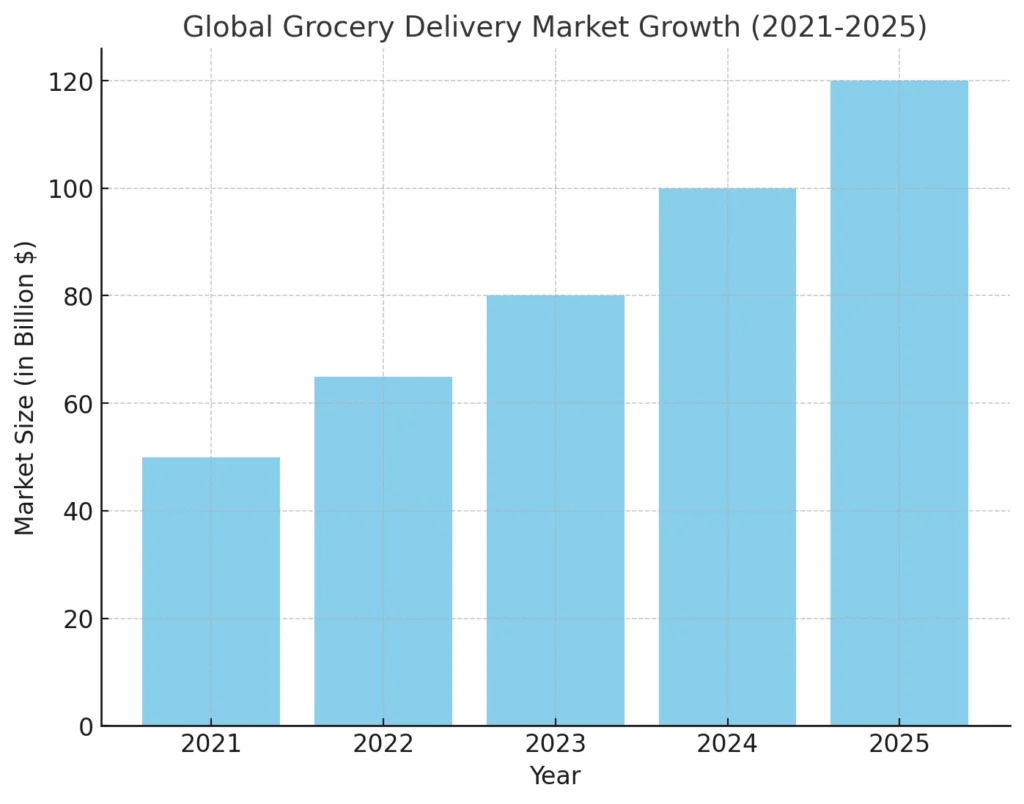
How to Differentiate Your Grocery Delivery Platform from Amazon Fresh
Building a grocery delivery platform similar to Amazon Fresh is just the beginning. To stand out in an increasingly crowded market, your app needs to offer features or services that make it unique and more appealing to your target audience. Differentiation is key to attracting users and ensuring they keep coming back.
One way to set your platform apart is by offering personalized shopping experiences. By leveraging user data, you can provide customized recommendations based on their previous purchases, dietary preferences, or favorite brands. This makes the shopping process faster and more convenient for users.
Another powerful differentiator is offering eco-friendly delivery options. In a world where sustainability is a growing concern, giving customers the choice of carbon-neutral deliveries or minimal packaging can resonate strongly with environmentally conscious consumers.
Consider introducing loyalty programs or subscription services that reward frequent shoppers. For example, offering free or discounted delivery for members can encourage customer retention and boost long-term engagement.
Focusing on underserved areas or niches, such as catering to organic or locally-sourced products, can also set your platform apart from a behemoth like Amazon Fresh. These strategies allow you to carve out a niche, making your app the go-to choice for specific customer segments.
By adding these unique touches, your platform can thrive in the competitive world of grocery delivery services.
Read More “The Best Grocery Delivery Services : Top Picks for Convenience“
| Feature | Amazon Fresh | Your Grocery Delivery Platform |
|---|---|---|
| Personalized Recommendations | Basic recommendations | Advanced, based on past purchases, preferences |
| Eco-Friendly Delivery Options | Not emphasized | Carbon-neutral delivery, minimal packaging |
| Loyalty Programs | Not available | Points-based loyalty program, free delivery for members |
| Niche Product Offerings | Wide variety, global brands | Focus on organic, local, or specialty items |
| Subscription Services | Prime membership required | Custom subscription options for free or discounted deliveries |
Market Size and Industry Growth
The global grocery delivery market has experienced rapid growth in recent years and shows no signs of slowing down. In 2021, the market was valued at around $50 billion, with experts projecting it to reach over $120 billion by 2025. This explosive growth is driven by changing consumer behavior, increased reliance on technology, and the convenience of on-demand services.
The COVID-19 pandemic significantly accelerated the shift towards online grocery shopping, with more people than ever before turning to digital platforms for their daily essentials. Even as restrictions ease, this trend persists, with consumers appreciating the convenience of home delivery and time saved.
Emerging markets, as well as suburban and rural areas, are also contributing to the industry’s expansion. This indicates that there’s still plenty of untapped potential for new entrants to capture market share. As more players enter the market, innovative features and specialized services will play a crucial role in gaining customer loyalty.
Developing a platform similar to Amazon Fresh positions you to take advantage of this upward trend. With smart planning and execution, your grocery delivery app can target the growing demand and meet the expectations of modern consumers.
Read More “Top 10 Ideas for Grocery Delivery Business Startups“
| Year | Global Market Size (Billion $) | North America (Billion $) | Europe (Billion $) | Asia-Pacific (Billion $) |
|---|---|---|---|---|
| 2021 | $50 | $20 | $12 | $15 |
| 2022 | $65 | $25 | $15 | $18 |
| 2023 | $80 | $30 | $18 | $22 |
| 2024 | $100 | $38 | $22 | $27 |
| 2025 | $120 | $45 | $28 | $32 |
Key Features of a Grocery Delivery Platform Like Amazon Fresh
To build a successful grocery delivery platform like Amazon Fresh, it’s crucial to include a set of features that enhance the user experience while ensuring smooth operations. These features are the foundation of any on-demand service and help create a seamless process for both customers and delivery drivers.
For the user app, essential features include a robust search function to browse products quickly, real-time tracking of orders, multiple payment options (credit cards, digital wallets, etc.), and scheduled delivery slots for flexibility. The inclusion of personalized recommendations based on shopping history can also enhance user engagement.
For the delivery driver app, features like order management, in-app navigation, and communication tools are necessary to ensure timely deliveries. Real-time updates on orders and routes will streamline the process and improve efficiency.
On the admin side, tools for inventory management, order tracking, and customer support are essential to keep the platform running smoothly. Analytics dashboards are important for monitoring performance, user behavior, and financial data, which will help in making informed decisions.
Having a feature set that caters to the needs of users, drivers, and admins ensures that your platform operates efficiently while providing a superior customer experience. The smoother the operation, the more likely customers are to return and recommend your service.
| Platform Side | Key Features |
|---|---|
| User App | – Product search and filters |
| – Real-time order tracking | |
| – Multiple payment options (cards, digital wallets) | |
| – Scheduled delivery slots | |
| – Personalized recommendations based on shopping history | |
| – In-app notifications and alerts | |
| Delivery Driver App | – Order management system |
| – In-app navigation and route optimization | |
| – Real-time communication tools (with customers and support) | |
| – GPS tracking and real-time updates on order status | |
| – Earnings and performance tracking | |
| Admin Panel | – Inventory management |
| – Real-time order tracking and monitoring | |
| – Customer support and ticketing system | |
| – Analytics dashboards (user behavior, sales data, delivery metrics) | |
| – User and driver account management |
Ready to disrupt online grocery delivery?
Develop a feature-packed app with AI-powered
recommendations, secure payments, and automated logistics.
Technical Requirements
Building a grocery delivery platform like Amazon Fresh requires a solid technical foundation to ensure smooth performance, scalability, and security. Choosing the right tech stack is crucial to meet the demands of modern users who expect fast, seamless experiences across devices.
For the frontend, using frameworks like React Native or Flutter is a smart choice because they allow for cross-platform development, ensuring your app works smoothly on both iOS and Android devices with minimal effort. This reduces development time and costs while providing a consistent user experience.
On the backend, robust frameworks like Node.js or Python (Django) are popular due to their scalability and speed. These frameworks can handle multiple user requests simultaneously, ensuring your platform remains responsive even during high traffic. For real-time features like order tracking, integrating Socket.io or similar technologies will ensure updates are delivered instantly.
Your app will also need to connect with payment gateways like Stripe or PayPal for secure transactions, and maps APIs like Google Maps for accurate delivery routes. Security should be a top priority, with data encryption and compliance with regulations like GDPR or CCPA.
Finally, using cloud services like AWS or Google Cloud ensures that your platform can scale quickly as your user base grows, offering flexibility and reliability.
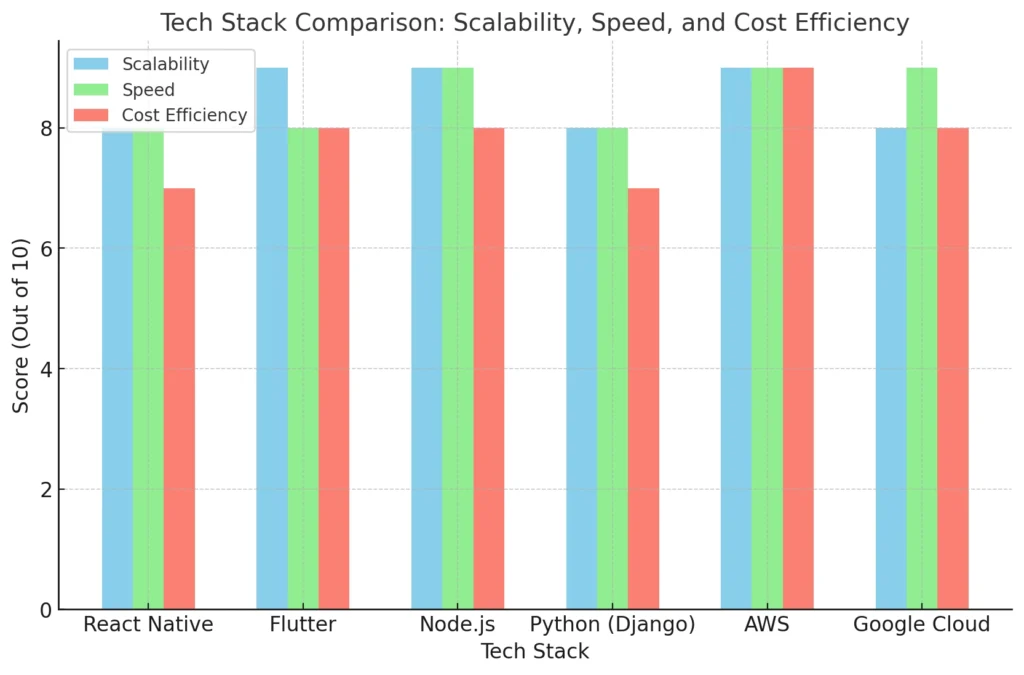
Design and User Interface (UI/UX)
A sleek, intuitive design and a user-friendly interface are essential for the success of any grocery delivery platform. The better the UI/UX (User Interface/User Experience), the easier it is for customers to navigate, which directly impacts user retention and satisfaction. For a platform like Amazon Fresh, design is not just about aesthetics—it’s about functionality that allows users to shop, order, and track their groceries effortlessly.
To achieve an exceptional UI/UX, your design should prioritize simplicity and speed. Users should be able to find products quickly, add them to their cart, and check out without any hassle. Search filters, clear category breakdowns, and an easy-to-use shopping cart are vital features to include.
For mobile users, ensuring that the design is mobile-first is crucial, as most customers will be using their smartphones to place orders. Features like one-click checkout, push notifications for order updates, and an order tracking dashboard can enhance the overall user experience.
A well-designed driver interface is just as important. The app should provide clear delivery instructions, GPS navigation, and easy communication options for drivers, ensuring timely deliveries.
An optimized UI/UX not only attracts users but also keeps them coming back. Small improvements like reducing the number of steps to place an order or making the checkout process smoother can significantly increase conversion rates.
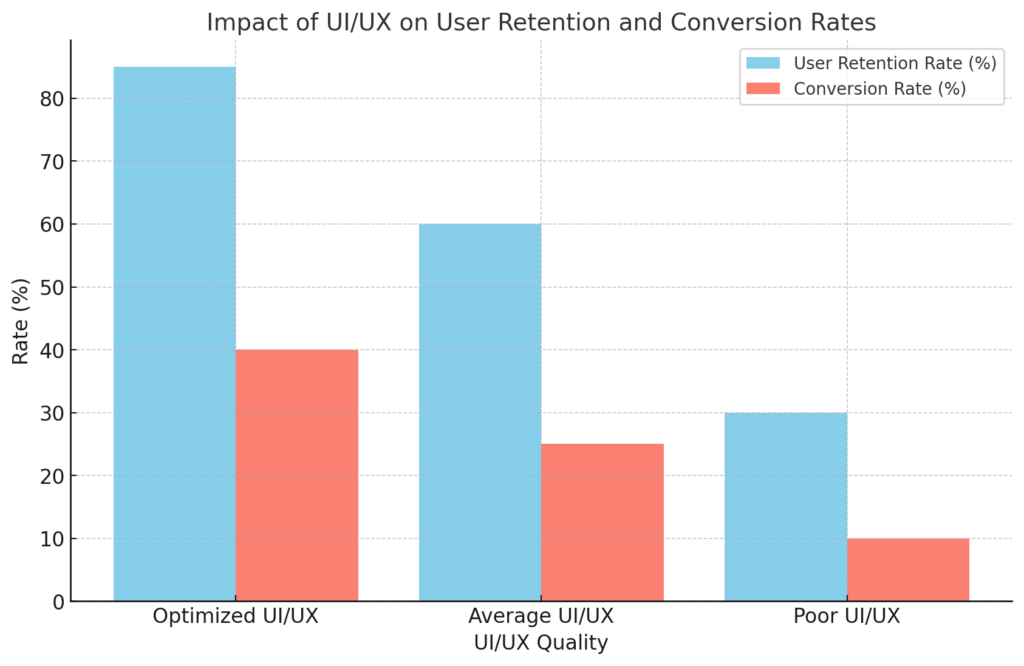
Minimum Viable Product (MVP)
Launching a grocery delivery platform like Amazon Fresh can seem daunting, but starting with a Minimum Viable Product (MVP) is a smart strategy. An MVP allows you to enter the market faster and with lower costs, focusing on core features that meet essential user needs without overcomplicating the initial offering.
The primary goal of an MVP is to test your business idea with real users, gather feedback, and iterate based on what you learn. For a grocery delivery app, the MVP should include the most critical functionalities: a user-friendly interface for browsing and ordering products, a basic delivery management system, and secure payment processing.
Starting simple means you can focus on perfecting these key features. Once your MVP is in the hands of users, you can analyze their behavior, understand what works well, and identify areas for improvement. This process reduces the risk of investing heavily in features that users might not find valuable.
Additionally, launching an MVP helps you attract early adopters, who can provide valuable insights and help spread the word about your platform. Over time, you can add advanced features like personalized recommendations, loyalty programs, and robust analytics tools to enhance the user experience.
Building an MVP is about agility and responsiveness. It allows you to enter the market quickly and adapt to customer feedback, laying a solid foundation for future growth.
Also Read :- Build Your Own Food Delivery App Like DoorDash: Cost, Features, and Development Process
Development Process
The development process for a grocery delivery platform like Amazon Fresh involves several crucial steps, each designed to ensure that your app is user-friendly, reliable, and scalable. Here’s a streamlined approach to take you from concept to launch.
- Research and Planning: Begin with comprehensive market research to understand your target audience, competitors, and market trends. Define the core features of your platform, focusing on what will set you apart.
- Wireframing and Prototyping: Create wireframes to visualize the app’s layout and flow. This stage helps you plan the user experience (UX) effectively. Prototyping tools can simulate interactions, allowing for early feedback from potential users.
- Design: Once the wireframes are approved, move to the visual design phase. Here, you’ll focus on creating an appealing user interface (UI) that aligns with your brand identity and is easy to navigate.
- Development: With designs in place, developers will begin coding the app. This involves building both the frontend and backend, ensuring seamless communication between the two. It’s essential to focus on performance and security during this phase.
- Testing: Rigorous testing is crucial. Perform unit tests, integration tests, and user acceptance tests (UAT) to identify and fix bugs. This ensures a smooth launch and enhances user satisfaction.
- Launch: After thorough testing, deploy your app to the app stores. Monitor user feedback and analytics closely to address any issues quickly and implement necessary updates.
Following this structured development process will help you launch a successful grocery delivery platform that meets user needs and expectations.
Monetization Strategies
To ensure the long-term success of your grocery delivery platform like Amazon Fresh, implementing effective monetization strategies is crucial. By diversifying your revenue streams, you can build a sustainable business that thrives in the competitive online grocery market. Here are several proven monetization methods to consider:
- Delivery Fees: Charge customers a standard delivery fee per order. This can vary based on distance, order size, or whether it’s a same-day delivery. Offering free delivery for larger orders can also encourage higher spending.
- Subscription Services: Introduce a subscription model that offers customers benefits such as free deliveries, exclusive discounts, or access to premium products. This creates a steady revenue stream while fostering customer loyalty.
- Commission from Partners: Collaborate with local farms, bakeries, and other suppliers. By taking a commission on each sale made through your platform, you can earn money while supporting local businesses.
- In-App Advertising: Allow brands to advertise their products within your app. Sponsored listings or banner ads can generate additional revenue without disrupting the user experience.
- Promotional Partnerships: Team up with other businesses for cross-promotions. For example, partnering with fitness brands to offer discounts on health products can attract new customers while providing value to existing ones.
- Data Monetization: As your platform grows, you’ll gather valuable data on consumer behavior. This data can be anonymized and sold to market research firms or used to improve your own marketing strategies.
By implementing these monetization strategies, you can create a robust financial foundation for your grocery delivery platform, ensuring it remains competitive and profitable in the long run.
Launching and Marketing the Grocery Delivery Platform
Successfully launching and marketing your grocery delivery platform is crucial for attracting users and establishing your brand in a competitive market. A well-planned marketing strategy will help generate buzz, engage potential customers, and drive app downloads. Here’s how to make your launch a success:
- Pre-Launch Campaign: Build excitement before your official launch. Utilize social media platforms to share sneak peeks, teasers, and behind-the-scenes content. Consider creating a countdown to launch day, incentivizing users to sign up for early access or exclusive offers.
- Influencer Partnerships: Collaborate with local influencers or food bloggers who can promote your app to their followers. Authentic endorsements can significantly boost visibility and credibility, helping to attract an audience eager to try your service.
- Content Marketing: Create valuable content that resonates with your target audience. This could include blogs about healthy eating, recipes, or tips for online shopping. Optimizing this content for search engines (SEO) will help draw organic traffic to your website.
- App Store Optimization (ASO): Ensure your app is easily discoverable in app stores. Use relevant keywords in your app’s title and description, include engaging visuals, and encourage satisfied users to leave positive reviews.
- Promotions and Discounts: Offer limited-time discounts or referral bonuses to incentivize new users to sign up and make their first purchase. Consider loyalty programs that reward repeat customers, encouraging them to choose your platform over competitors.
- Post-Launch Feedback Loop: After launching, actively seek feedback from users to make continuous improvements. Utilize analytics to track user behavior and make data-driven decisions for future updates.
With a well-crafted marketing strategy, your grocery delivery platform can successfully attract users, ensuring a strong start in the market.
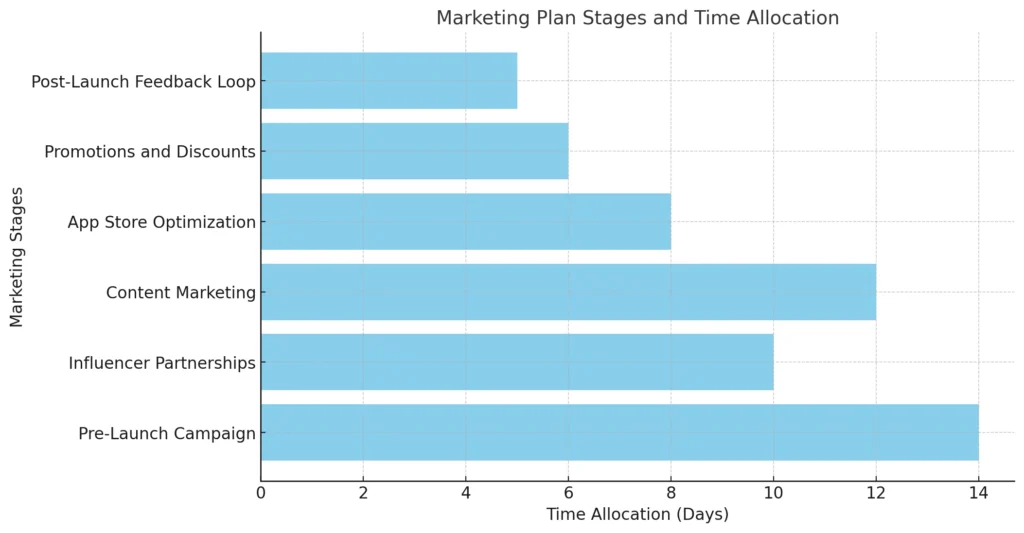
Why Trust Miracuves Solutions for Your Next Project?
Choosing the right partner for developing your grocery delivery platform is crucial for its success. Miracuves Solutions stands out as a reliable and efficient choice for several compelling reasons.
First and foremost, Miracuves Solutions offers extensive experience in app development, particularly in the on-demand services sector. With a proven track record of successfully launching similar platforms, their team understands the nuances of grocery delivery logistics, user expectations, and market trends. This expertise allows them to deliver tailored solutions that align with your vision.
Cost efficiency is another significant advantage. Miracuves Solutions provides high-quality services at competitive prices, ensuring you receive exceptional value without compromising on quality. By utilizing a robust, ready-made framework, they can expedite the development process, often reducing timeframes significantly compared to traditional development methods.
Furthermore, Miracuves Solutions emphasizes collaboration and transparency throughout the development process. Their team actively involves clients in decision-making, ensuring that your ideas and feedback are integrated into the final product. This client-centric approach fosters trust and results in a product that genuinely meets your needs.
Finally, ongoing support and maintenance are integral to Miracuves Solutions’ offerings. They are committed to helping you adapt and grow your platform post-launch, ensuring it remains competitive and efficient in a rapidly evolving market.
By choosing Miracuves Solutions, you’re partnering with a team dedicated to your success, equipped with the skills and knowledge to turn your grocery delivery platform vision into reality.
Legal and Regulatory Considerations
When launching a grocery delivery platform like Amazon Fresh, understanding the legal and regulatory landscape is crucial to ensure compliance and protect your business. Here are the key considerations to keep in mind:
- Data Protection and Privacy: As a platform that collects user information, compliance with data protection regulations such as the General Data Protection Regulation (GDPR) in Europe and the California Consumer Privacy Act (CCPA) in the U.S. is mandatory. Ensure your app has robust privacy policies in place and that users are informed about how their data will be used and stored.
- Licensing and Permits: Depending on your location, operating a grocery delivery service may require specific licenses or permits. This can include business licenses, health department permits for handling food, and delivery service permits. Research the regulations in your area to ensure full compliance before launching.
- E-commerce Regulations: Familiarize yourself with the legal requirements related to e-commerce, such as consumer protection laws that govern online sales. This includes clear return policies, pricing transparency, and accurate product descriptions to avoid misleading customers.
- Employment Laws: If you plan to hire delivery drivers, ensure compliance with local labor laws regarding employment classification, wages, and worker rights. Misclassifying workers can lead to legal complications.
- Liability and Insurance: Protect your business with appropriate liability insurance. This covers potential claims related to delivery issues, product safety, and customer complaints.
By addressing these legal considerations from the outset, you can build a foundation of trust with your customers and avoid costly legal complications in the future.
Read More “BigBasket Business Model Explained: How India’s Largest Online Grocery Store Makes Money“
Future Growth Potential
As the grocery delivery market continues to expand, the future growth potential for platforms like Amazon Fresh is immense. By keeping an eye on emerging trends and technologies, you can position your grocery delivery platform for sustained success and adaptation in a dynamic landscape.
- Technology Integration: Embracing advanced technologies such as artificial intelligence (AI) and machine learning can enhance the shopping experience. AI can be utilized for personalized recommendations, inventory management, and even predicting customer preferences. These technologies help create a more tailored experience, increasing customer satisfaction and loyalty.
- Sustainability: Consumers are becoming increasingly eco-conscious. Offering sustainable options, such as carbon-neutral deliveries or partnerships with local farms, can not only attract a dedicated customer base but also differentiate your platform from larger competitors.
- Expansion into New Markets: As urban areas become saturated, exploring suburban and rural markets can unveil new opportunities. Many underserved regions are looking for reliable grocery delivery services, and entering these markets can drive significant growth.
- Partnerships and Collaborations: Collaborating with local businesses, restaurants, or health-focused brands can broaden your product offerings and customer reach. These partnerships can provide unique value propositions, setting your platform apart.
- Continuous Improvement: Gathering feedback and utilizing analytics to understand customer behavior will enable continuous improvement of your services. This adaptability ensures that your platform remains competitive and relevant.
By staying ahead of these trends and continuously innovating, your grocery delivery platform can not only survive but thrive in an ever-evolving marketplace.
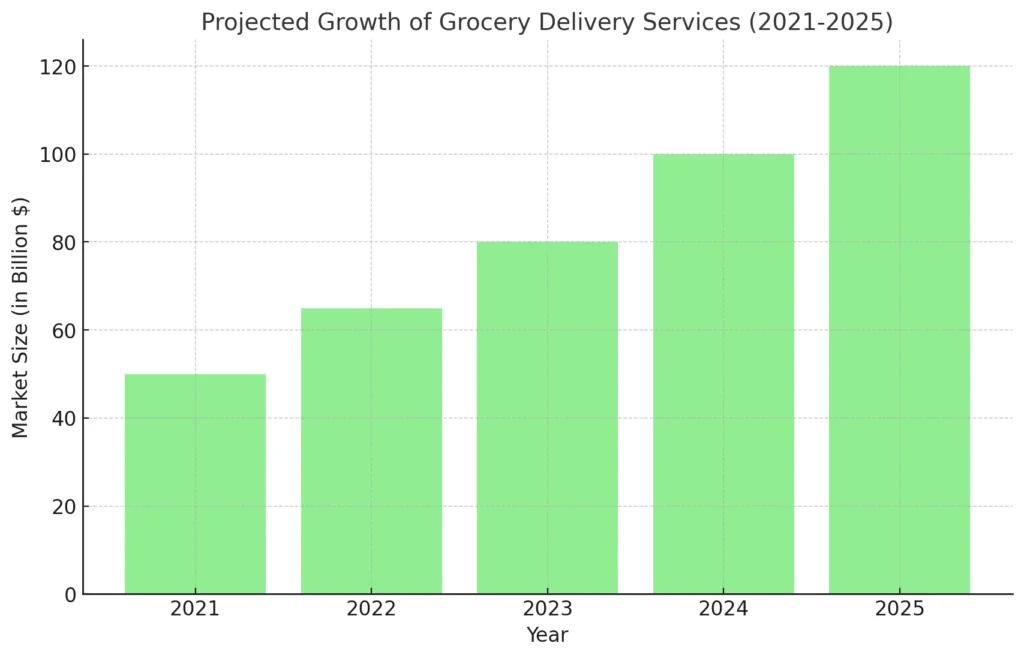
Conclusion
Building a grocery delivery platform like Amazon Fresh presents a remarkable opportunity in a rapidly growing market. By leveraging technology, understanding consumer needs, and implementing effective strategies, you can create a service that not only meets but exceeds user expectations.
From developing a solid MVP to integrating advanced features and ensuring compliance with legal regulations, every step is vital in crafting a successful app. Choosing a trusted partner like Miracuves Solutions can provide the expertise and resources necessary to bring your vision to life efficiently and affordably.
As consumer preferences continue to shift towards convenience and sustainability, your grocery delivery platform can thrive by staying adaptable and innovative. With the right approach, you can tap into the vast potential of this industry, ultimately leading to a profitable and impactful business.
Ready to launch your own e-commerce app?
Build Your E-commerce App Today , We can help you create an app that’s secure, user-friendly, and designed
to boost sales.
FAQs
How much does it cost to build a grocery delivery platform like Amazon Fresh?
The cost to build a grocery delivery platform like Amazon Fresh can range from $30,000 to $100,000, but with Miracuves’ ready-made clone solution, you can launch your complete grocery delivery app for just $2,899, fully configured and deployed within 3–6 days.
How long does it take to build an Amazon Fresh clone?
Developing a complete platform like Amazon Fresh usually takes 4 to 6 months, but with Miracuves’ ready-made Amazon Fresh clone, you can launch your fully functional grocery delivery app in just 3–6 days, ensuring a rapid and efficient market entry.
Can I customize the Amazon Fresh clone to suit my business?
Yes, you can customize the clone to fit your brand’s unique needs. This includes adjusting the design, features, and even integrating local partnerships to enhance user experience and satisfaction.
What payment gateways can be integrated into the platform?
Common payment gateways include Stripe, PayPal, and Square. These options provide secure transactions and a variety of payment methods for users, enhancing the overall shopping experience.
How can I attract customers to my grocery delivery platform?
Utilize effective marketing strategies such as social media promotions, influencer partnerships, and SEO. Offering introductory discounts and referral bonuses can also encourage new users to try your service
Check out the top-rated delivery solutions offered by Miracuves – built for performance and scale:
- Postmates Clone Solution – Imagine one powerful platform that lets you book a stay, order your favorite meals, hail a ride, pay bills, and much more all in a single app.
- Doordash Clone Solution – Book stays, order food, hail rides, make payments, and more all in one seamless app designed to move with you.
- Amazon Fresh Clone Solution – From farm-fresh produce to snacks, pantry staples, and household must-haves shop in seconds and get what you need, when you need it.
- FedEx Clone Solution – A smart logistics and courier platform for real-time shipment tracking, instant pickups, and secure, on-time delivery.



